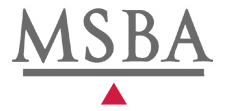
This post was written by guest blogger Sonja Dunnwald Peterson, Co-Chair of the Minnesota State Bar Association Human Rights Committee.
On April 25, 2014, the Minnesota State Bar Association (“MSBA”) became the first Bar Association in the nation to adopt a conflict-free policy. By passing “The Conflict-Free Initiative” the MSBA is speaking out against the ongoing conflict in the Democratic Republic of Congo (“DRC”).
The MSBA is a voluntary professional association of attorneys in Minnesota. It pools the talents and experiences of lawyers, judges, and legal professionals across the state to improve the practice of law, advance the goals of the justice system, and benefit the community. The Human Rights Committee of the MSBA works with other MSBA sections and committees, local attorneys, and other human rights organizations to support human rights locally, nationally, and globally.
The overwhelming majority of a lawyer’s legal documents are created on a computer, and many legal documents in Minnesota must be filed with the courts electronically. Lawyers everywhere talk to their clients and colleagues on their cell phones. Knowing that change often begins with consumer knowledge, the MSBA Conflict-Free Initiative resolution promotes education for its members about the reality of the conflict in Congo and about the steps we can take locally to stop funding that conflict and to build a more just society. As educated consumers of electronics, attorneys can have significant power to encourage responsible, conflict-free practices in the electronics trade.
The MSBA’s resolution supports transparent supply chains in the DRC, resolves to purchase conflict-free electronics when available, and also encourages its over 15,000 members to purchase products from high-ranking companies from the Enough Project’s Conflict Minerals Company Rankings.
Therefore, be it resolved that the MSBA support the efforts of companies to purchase conflict-free minerals and support transparent supply chains in the DRC;
Be it also resolved that the MSBA will purchase, and encourage MSBA members to purchase, electronics products from the high ranking companies noted in the Enough Project’s Conflict Minerals Company Rankings.
In December 2013, Dr. Ellen Kennedy of World Without Genocide at William Mitchell College of Law, St. Paul, MN, contacted the MSBA Human Rights Committee about action the MSBA could take locally to take a stand against genocide. Dr. Kennedy provided us with information from the Enough Project about the decades-long political and civil conflict in the DRC, resulting in the death of nearly 6 million Congolese civilians since 1994. We learned that much of the global supply of minerals necessary for our cell phones and computers is mined in Congo, and that many of the mines were controlled by militias as a source of funding the conflict. As lawyers, we were familiar with the Dodd-Frank Wall Street Reform Act of 2010, but many of us were unaware that the Act required companies that use minerals mined in Congo to file a report with the Securities Exchange Commission regarding the source of the minerals. We quickly realized that by purchasing electronics from companies that actively audit their supply chains to prevent purchase of minerals from militias, we could use our consumer power to stop financing the conflict in Congo.
To support this initiative, on January 13, 2014, the MSBA Human Rights Committee approved a resolution to have the MSBA endorse a Conflict-Free Congo procurement policy. The Conflict-Free Initiative was then presented to the MSBA General Policy Committee, whose function is to make recommendations for MSBA positions on public policy. The General Policy Committee unanimously adopted the Conflict-Free Initiative Resolution and presented it for approval to the MSBA Assembly, which formulates policy and decides all business of the MSBA. At its quarterly meeting on April 25, 2014, the MSBA Assembly unanimously approved the Conflict-Free Initiative Resolution.
Knowledge is the first step in ending human rights atrocities. One by one — as lawyers, as committees, as bar associations — we can educate ourselves, our colleagues, and our clients, about the ongoing atrocities in Congo. One by one, we can take the steps to help end those atrocities by supporting companies that are working to become conflict-free. One by one, our unified steps can become a mass march to end conflict.
Check out our Conflict-Free Campus Initiative page to learn more about how you can make your school or organization conflict-free.

